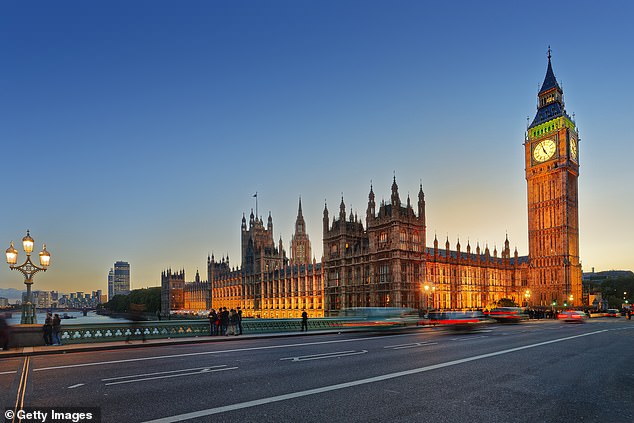Daily Mail among 40 publishers calling for the Government to tackle big tech firms’ unauthorised use of content to train AI systems
A group of more than 40 organisations from music, art, publishing and film is calling for government to tackle big tech firms’ unauthorised use of content to train its AI systems.
A new coalition, called Creative Rights in AI Coalition, launched yesterday urging ministers to protect copyright rules for creative groups.
The cross-industry group is concerned tech companies are exploiting the work of British companies.
There is huge controversy over the way tech companies use content from the UK to feed their AI systems, without paying or crediting these firms.
This comes as the Government is today [Tues] expected to launch a consultation on how to manage the relationship between AI companies and creative industries.
The newly launched Creative Rights in AI Coalition is calling on Government to adopt a set of principles that would become ‘a framework for developing AI policy’.
It said this included the need for ‘robust’ protections for copyright control and ‘transparency’ for content creators.
Among the members of the group are the British Phonograph Industry (BPI), the Publishers Association, UK Music, the Motion Picture Association and DMG Media, which owns the Daily Mail.

Over 40 organisations in music, art, publishing and film in calling on the Government to take action over big tech firms’ unauthorised use of their content

A new coalition, called Creative Rights in AI Coalition, launched yesterday urging minister to protect copyright rules
Last month peers criticised ‘tepid’ and ‘inadequate’ government attempts to tackle big tech’s unapproved use of news content to train their systems.
The New York Times last year revealed it was suing ChatGPT owner Open AI and Microsoft over allegations they used its content to train generative artificial intelligence.
Last week Sir Paul McCartney warned that AI could stop young composers and writers having a career, saying ‘if AI wipes that out, that would be a very sad thing indeed’.
Polling released to coincide with the launch of the coalition showed that 72 per cent of people thought AI companies should be made to pay royalties to the creators of content they use to train their systems.
It also found that 80 per cent thought that AI companies should have to make publicly available all the information their models have been trained on.
In a statement the Creative Rights in AI Coalition said: ‘The UK’s world-leading creative and tech sectors put it in a unique position to set a global standard for how both sectors can innovate together and continue to provide high quality services.
‘Protecting copyright and building a dynamic licensing market for the use of creative content in building generative AI (GAI) isn’t just a question of fairness: it’s the only way that both sectors will flourish and grow.’
It added: ‘The UK creative industries generate well over £100 billion annually. We have, quite literally, earned the right to have our voice heard. The key to that success, and future growth, is copyright law.’

The New York Times last year revealed it was suing ChatGPT owner Open AI and Microsoft over allegations they used its content to train generative artificial intelligence
The group said AI developers had ‘largely exploited’ copyright protected works ‘without permission’, whilst ‘ignoring copyright protections’.
It added a ‘mutually beneficial’ market could only ‘flourish’ if there was ‘respect for copyright’ and ‘robust mechanisms’ in place.
The coalition said that ‘without proper control and remuneration for creators’ investment in high-quality content would drop and generative AI innovation would ‘inevitably stall’.
Tomorrow [Weds] peers are set to debate amendments to the Data (Use and Access) Bill tabled by Baroness Kidron, which would mean UK copyright law could be enforced in the age of generative AI.

